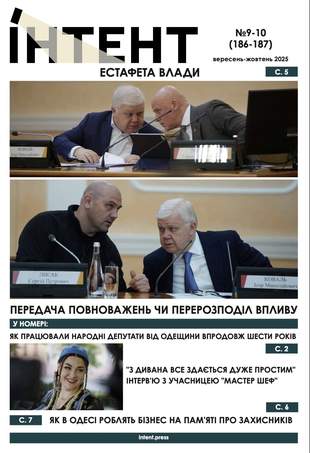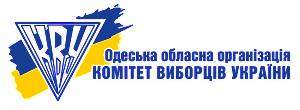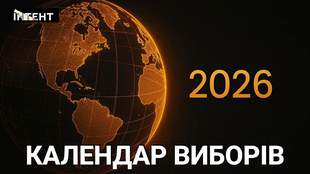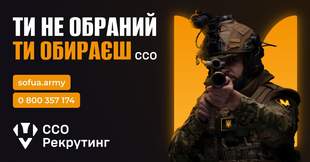Меню
Social networks
Sections
April 10, 2024, 9:45 p.m.
The Way Home: a book about the stories of Crimean Tatar families
17057
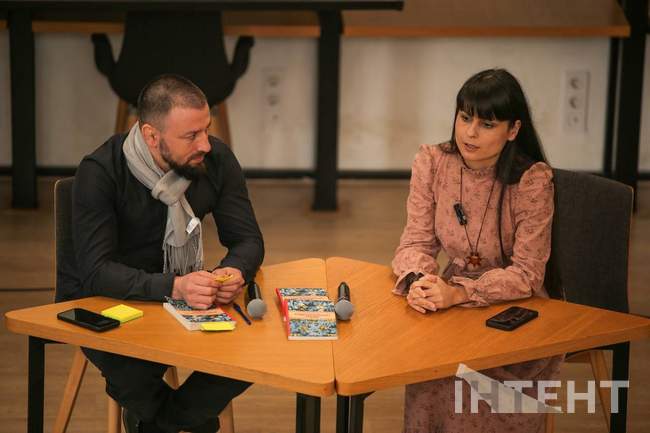
Photo: Intent/Natalia Dovbysh
Kharkiv-based Folio Publishing House presented a book by Odesa-based journalist and editor of the Intent publication Yevhenia Genova, Crimean Tatar Families, in which the media personality collected stories of 14 families. In March, Odesa residents could learn the story of the book and talk to the author.
"The book consists of 14 stories of Crimean Tatar families, covering various historical events - from the occupation of Crimea in the 18th century to the full-scale invasion in 2022. In fact, these are memoirs of ordinary people who recall how these events affected the lives of their ancestors and grandparents, as well as their return to Crimea in the 1990s, the Crimean resistance in 2014, and the armed resistance to the Russian invaders since February 24, 2022. In these stories, readers, regardless of their ethnicity, will find very understandable and relatable stories and memories, and perhaps better understand and feel their identity and learn more about the Crimean Tatar people, the indigenous people of Ukraine," Yevhenia Genova said in a comment to Intent.
Today we are publishing an exclusive excerpt from the book.
The house where women live
March in the Odesa region is very similar to November, only with hope. I'm walking down an ordinary village street, measuring my steps on the gray asphalt under a gloomy sky and trying to hide my hands deeper in my pockets. At the same time, I notice bright yellow crocuses in someone's carefully dug flowerbed, or, as they say here, front garden, and I'm watching for a bite from the shaggy dog that is also watching me. Every now and then I receive news alerts on my phone. One says that today, March 18, Russian President Vladimir Putin visited the occupied Crimea to mark the anniversary of the occupation. I skim the text without stopping, because at the end of the street, a dark-haired girl named Venus is waiting for me.
Together we walk to a small house. As soon as we step into the yard, an incredible barking sounds: two small dogs are working hard to get their bread and wagging their tails in a friendly manner.
- "They won't bite," says my companion's mother, Gulnara Seidametova, who meets us on the porch.
We enter the house and sit around the table in the cozy kitchen. While Venera is pouring tea, we are joined by Gulnara's other daughters, Zarema and Sofia. The fourth daughter, Elzara, is due to arrive later. Gulnara is visibly nervous. She would rather journalists never call her, and she would never know what an interview is. She is glad that there will be no camera, and exhales a sigh of relief. Somewhere in the middle of our conversation, Sofia leaves and returns with a baby in her arms. This is Zarema's daughter Evelina.
- "You have a house of women," I say.
- "Women who are waiting," adds Gulnara.
Five women are waiting to return home, to the border between Crimea and "mainland" Ukraine, where they have lived all their lives. Ukraine, where they have lived all their lives. They are waiting for Zarema's husband, who is defending Ukraine from the invaders. They are waiting for victory and the opportunity to visit their relatives in Crimea. They are waiting for the brothers of their Asan, Gulnara's husband, the father of her sisters and the grandfather of little Evelina, to come to visit. And when they will say at his grave: "Asan, Crimea is yours. You have been waiting for this moment."
Nadia and Shaib
Gulnara's parents, Nadezhda and Shaib, were born in Uzbekistan, a former Soviet republic that became the main place of forced residence for Crimean Tatars deported in 1944. Shakhrisabz, one of the oldest cities in Central Asia, became Gulnara's birthplace. However, for as long as she can remember, her family has always dreamed of returning home.
- In Shakhrisabz, her mother was an English teacher at school, and her father worked at the traffic police. Life was calm and measured. We could say we had everything. An outsider would probably say that we were happy because we had enough. We, the children, would have thought so too, if only... I don't even know how to say it. My grandparents died very young, and I don't remember them at all, that is, before the mid-1980s. This was the case in many Crimean Tatar families. Older people died very early, and they could hardly be called old. In fact, at the time of deportation, my grandparents were still children themselves. Our family comes from Krasnoperekopsk (the Soviet name, now Yany Kapu, or New Gate, translated from Crimean Tatar - author's note). It must have been such a trauma for the whole family that many people simply could not live with it for a long time, and happily at that. That's why they quickly left this world... Frankly, when I was little, and even when I grew up, I didn't want to hear such stories. Because when my mother sometimes told me about those events, she would immediately start crying, and I would get up and leave. I could not bear her tears. I regret it now, I should have listened. You see, I could have told you more today, and my daughters would have listened. But I felt so sorry for her. Every memory is an open wound," says Hulnara.
Since the late 1980s, when the Soviet Union was still in power, Crimean Tatars gradually began to return to Crimea, despite the lack of official permits. After the collapse of the USSR, the process accelerated rapidly: people who had settled lives, jobs, elderly parents, and several children packed their bags and returned. Often these were people who had been born in a foreign country and had never seen their own home. However, rationing did not work here, they could not do otherwise.
Gulnara's parents also returned home. It happened in 1993. At first, the family came to live with relatives in Feodosia. For a year, the couple and their four children crammed into a small summer kitchen. Gulnara, the youngest in the family, was a seventh-grader at the time, and she perceived the move as an incredible and exciting adventure. Her older brothers, like her parents, got jobs on a farm, and her sister, who had already finished school, worked in a local garden. A year later, they moved to the Henichesk district of Kherson region, where other relatives lived, as it was easier to get a house there. They started building a household, got cattle, and worked on the farm at the same time.
- My mother, who taught English at school in Uzbekistan, worked here all her life as a calf farmer. In Feodosia, she was not offered anything else, and in the Kherson region, it seems, she did not want to. She didn't know Ukrainian and was ashamed of it, so she stayed on the farm. Or maybe there were other reasons. At that time, Crimean Tatars, no matter what education they had, often worked only physically. They were not hired for other jobs. We had never been engaged in agriculture, we didn't know what it was like to keep cattle, we lived in the city. Now, in the village, everything was different. It was interesting, unusual for me. And my mother often cried, sometimes she said that if she had known that she would have to work so hard, change her life so much, she might not have come back. On the other hand, I know we are home. And that's the way it should be - people should have a choice. My mom's parents are buried somewhere in Uzbekistan. And I want my graves to be close to me... If only there were fewer of them," she says.
Gulnara and Asan
After the ninth grade, Gulnara went to work at an agricultural enterprise. She says she wanted to study further, but her mother was afraid to let her youngest daughter go to a distant city, so she stayed with her parents. At the age of 19, she met a local crane operator named Asan. After marriage, she stopped working.
- "Asan said to me: "Why do you need to work? What am I for? I will do everything." And so it was. As you can see, we had four daughters. A house, a garden, a vegetable garden, a family... Like everyone else, I guess. Nothing so special," the woman smiles shyly, talking about the things she is used to is not easy. She is sincerely surprised: what could be interesting for others? Life is like life.
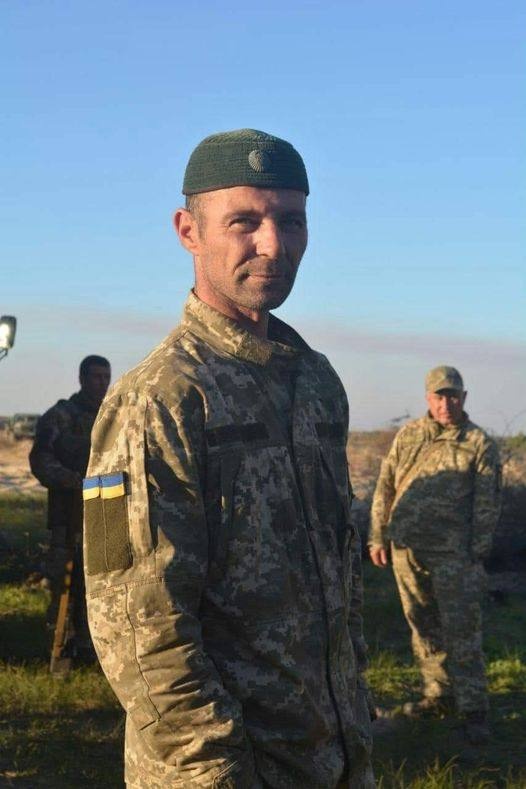
Asan. Photo from the family archive
Asan's family was deported from the Bakhchisarai district of Crimea, but after returning they settled in the Genichesk district. Unlike Gulnara, he is the eldest in a family with three brothers, Yakub, Ayder and Akhtem, and a sister, Arzy.
Asan, who trained as a crane operator after high school, worked in this specialty for many years. In fact, until he decided to mobilize into the Armed Forces of Ukraine in 2016.
- He could not do otherwise. "Before the occupation of Crimea, we often went there: many relatives, friends, acquaintances... Geographically, it's close by. But after 2014, we didn't go there anymore. It was dangerous, and Crimea became completely different. Everyone who stayed there or sometimes visited said that everyone became silent and gloomy. You can't say an extra word in public transportation or in a store: they can report it to the FSB at any time. This is not life. Asan dreamed of returning to Crimea. He was drawn to his grandparents' homeland, Bakhchisarai," Gulnara recalls.
"As a member of the Armed Forces of Ukraine, Asan fought in the east of the country, took part in the battles in Pisky, renewed his contract after the end of the three-year term, and returned home shortly before the full-scale war.
- In 2021, he came home. He said he was tired and wanted to live a peaceful life. But it didn't last long. His commander called and said: "Asan, we need you." He came to me: "What should I do?". What could I tell him? Five years at war, children were growing up, they did not see their father... But we will not tie him down. He could not be at home when his comrades needed his help. He couldn't do it, that's all. He left again," says the soldier's wife.
She is wearing a metal chain with a medallion around her neck. She slowly takes off the warm metal and puts it in my palm: a photo of her and Asan together is engraved on a silver plate: he in his uniform, she in his skullcap with a trident. We are silent, the green tea is cooling in our cups.
The endless road
In the early morning hours of February 24, 2022, Zarema, the eldest daughter of Gulnara and Asan, was the first to wake up to the explosions. In her family's home in Novooleksiivka, they were especially well heard: the orcs were advancing on Kherson region from the occupied Crimea. At 4:30 in the morning, Gulnara, who was watching the battle from her house, called her husband.
- Asan was serving in Odesa at the time. The city was bombed about an hour later. So he didn't believe me, he says: "Come on, what explosions? And our roof was shaking. I gathered the children and went to my mother-in-law's house. Later, Asan called me back and said: "It's really a war". He wanted to come to pick us up, but he couldn't.
So, before they knew it, the Seydametov family was under occupation. Almost immediately, armed Russian soldiers with lists of ATO participants began to break into the house. However, strangely enough, Asan was not on those lists, but both of his younger brothers, who also fought for Ukraine, were. Having found no one, the occupiers left, but promised to return. When the searches became more frequent, Gulnara realized that it was becoming quite dangerous.
- A good friend called and said that we had to get ready because "there will be guests". Then, in an hour, we probably gathered all of Asan's belongings, his awards, documents - everything that testified to his participation in the ATO- and burned them in the stove. I cried so much then... Later I asked him for forgiveness. Maybe we should have buried him somewhere, but we didn't have time to do that, and they could have found him. Everything burned down... All the medals," she shakes her head sadly.
- "Occupation is when you are happy if you are just killed. Because they can rape you, torture you, mock your family... It's as if we've experienced again what our ancestors once did. It's a feeling of fear, helplessness, confusion. When you don't know what to do, what to take with you first, what to hide, and you don't understand why," Zarema adds.
In that terrible February, she left Novooleksiivka for Lviv. It was there that she gave birth to Evelina, who now smiles sincerely at guests and then looks at a piece of bread in her hands with great concentration.
Hulnara and her younger daughters stayed under occupation until April 2022. It was impossible to leave the Genichesk district safely, because the "green corridor" for the evacuation of civilians had never been opened from the occupied Kherson region. In addition, they were afraid that they might be detained at checkpoints because of their last name. But it was impossible to stay under occupation any longer.
- It was getting more and more dangerous. The Russians said that they were mobilizing all medics, including women. In our big family, there are two doctors - my second daughter and the wife of my brother Asan, who was an imam in our village. And one day we decided to go together. There were eleven of us in a seven-seater car: me and my three daughters and our imam's family with five children. We were driving in the direction of Zaporizhzhia through dozens of checkpoints. We heard shelling on the way. We passed a lot of checks. But, fortunately, everything went well. We stayed with Zarema in Lviv, and our relatives went further abroad," Gulnara does not like to recall that journey. And our whole conversation is not a fun one. But the girls sitting at the table, ears perked up, admit that this is probably the first time they have heard so much about their family.
Later, Asan suggested that the family move to Odesa region, closer to home and to his native 28th separate mechanized brigade named after the Knights of the Winter Campaign.
- I was not going abroad and I am not going to go abroad. I want to go home. But for now, we are here. This is our fate from our ancestors: an eternal journey, and this journey was not chosen by us. From home - to Uzbekistan, from there - home after half a century, then - to Kherson region, then - Lviv, now - Odesa region. What's next? We want to go home," says a woman with a piece of warm metal on her chest.
- "All my life I wanted to meet the dawn on the road. And I did... The morning of February 25... The most terrible dawn and the most difficult road - with a child under my heart and occupiers everywhere," Zarema adjusts little Eva's blouse and gently kisses the top of her head.
Call sign Tataryn
Staff Sergeant Asan Seidametov had the call sign Tataryn and always wore a skullcap with a trident. Even though from time to time he received remarks about violating the rule of wearing a military uniform.
- That skullcap... He said it saved him twice. Once, a bullet passed so close that it hit his trident, ricocheted and moved on. His forehead was only scratched, just imagine. He said that I really saved him. For the second time, I don't know exactly what happened, but he said she was happy. He never parted with her. In general, he did not talk about the war. He didn't want me to worry, he didn't want the children to be afraid for him. He always said that everything was fine. He believed that he had to return our Crimea, and so he could not help but fight. He just couldn't. And when the brigade liberated Kherson, he called me. I hadn't heard such a joyful voice in a long time. "Kherson, Gulnara, we are in Kherson! Do you hear me? It's a stone's throw home from here, it's still close by. We'll be in Crimea soon!" he was shouting with joy. I was so happy too," Gulnara recalls.
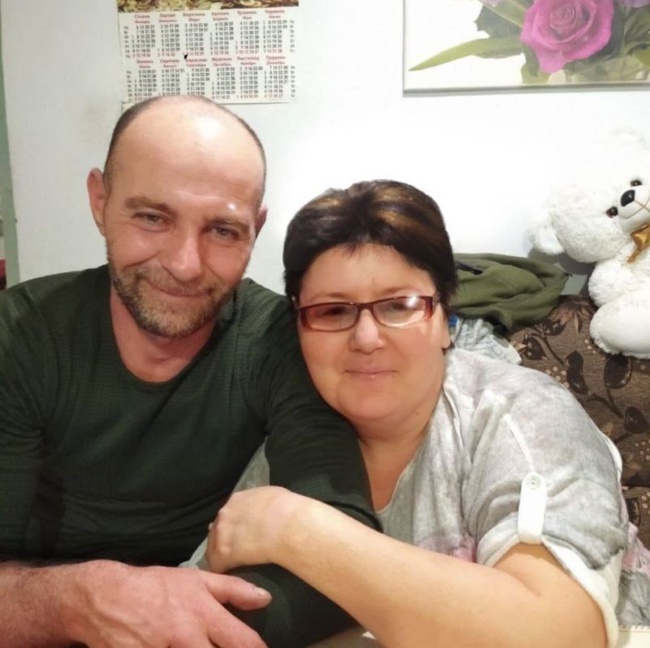
Asan and Gulnara. Photo from the family archive
Later, the brigade was redeployed to one of the most difficult areas of the frontline, near Bakhmut. Asan's friends recall that the commander tried to keep him, as a father of many children, from being on the ground, but the soldier himself appealed to the brigade leadership with a statement that he wanted to fight on the front line.
- He adored Crimea. You could say he was obsessed with it. He was constantly telling everyone about Crimea, about the resistance of people there, about the fact that many people in Crimea support Ukraine, and that is why the Russian FSB throws them in jail. He told us that Russia had been depriving his people of their homeland for three hundred years, since the first occupation of Crimea. We told him that it was almost the same as us. Only his people are small. Try to survive, try to withstand such an invasion, when millions of armed occupiers are against you. Thanks to him, many of us learned about the history of the Crimean Tatars. He made us fall in love with Crimea and his people, and we all wanted to go there with him. He was the best person. We tried to protect him as best we could. He really wanted to go home. He wanted to see his wife, daughters, granddaughter, because she was born when he was fighting. And four days before he died, he gave me his famous skullcap. He wanted it for some reason. It was very dear to him. I cherish it now. In the morning of that day, when we were getting ready for a combat mission, he said something sad: "I want to go to my children...". We took care of him as best we could. But we did not save him, you see, - my brother-in-arms, with whom I am talking on the phone, has a trembling voice. He was seriously wounded in the battle and is now undergoing rehabilitation. He can't talk about Asan calmly, he admits that he was like a brother to him.
After the death of Asan Seidametov in January 2023, President of Ukraine Volodymyr Zelenskyy awarded him the Order "For Courage" of the III degree posthumously.
- We buried him at the Western Cemetery in Odesa. So we have to be here, closer to him. You see, Asan, you wanted to go home so much. Now we want to go there for you, for ourselves, and for all our people," says the owner of a small house on the edge of the village, where the women live alone.
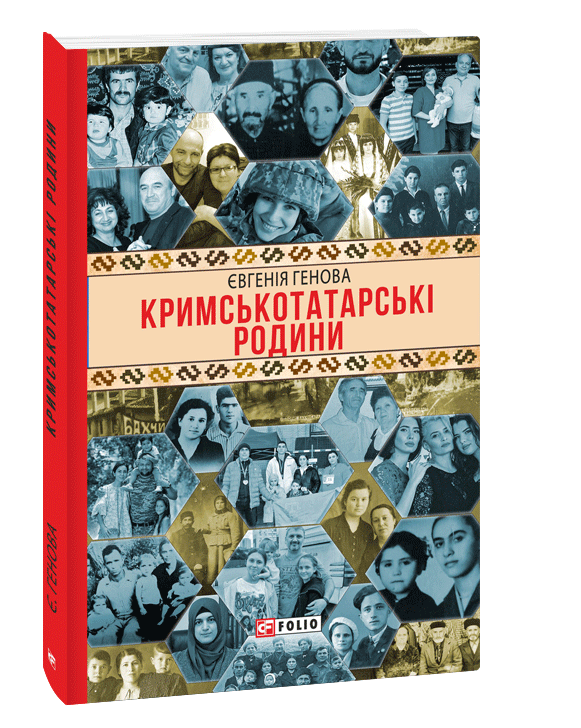 Paper and digital versions can be purchased on the publisher's website:
Paper and digital versions can be purchased on the publisher's website:
The author: Yevhenia Henova
Language of publication: Ukrainian
Cover: soft
Number of pages: 224
Format: 84x108 1/32
Genre: Socio-political publication
Series: Frontier
Year of publication: 2023
ISBN: 978-617-551-732-1




